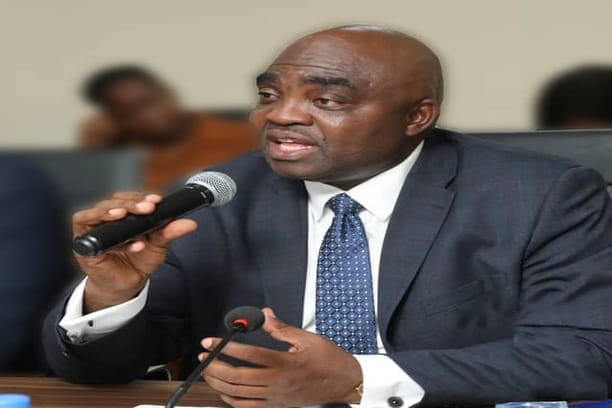

ICRC spearheads Nigeria’s economic transformation with strategic Public-Private Partnerships across critical infrastructure sectors.
(EPICSTORIAN) – The Federal Government has reaffirmed its commitment to Public-Private Partnerships (PPP) as a cornerstone for bridging Nigeria’s infrastructure gaps and stimulating economic growth.
This strategic approach was emphasized through a recent directive mandating all Ministries, Departments, and Agencies (MDAs) to comply with the Infrastructure Concession Regulatory Commission (ICRC) Act of 2005 and the National Policy on PPP (N4P) in their 2025 budget proposals.
“Signing PPP-related Memoranda of Understanding or contracts without adhering to the ICRC Act constitutes a violation of the law,” the directive warned, remarking the government’s intent to streamline processes.
Driving Infrastructure Development
Dr. Jobson Oseodion Ewalefoh, the ICRC Director-General, has spearheaded a six-point policy directive since assuming office in July. His agenda aligns with President Bola Tinubu’s vision to close Nigeria’s infrastructure deficit.
Speaking at a strategic retreat in Akwa Ibom, Ewalefoh emphasized, “PPP is essential across all sectors; it extends beyond infrastructure to optimizing existing systems for transformative impact.”
Ewalefoh outlined key initiatives, including innovative financing models, inter-agency collaboration, and time-bound project delivery, to accelerate progress. Notably, the commission has prioritized evaluating concession contracts to ensure optimal performance and compliance with legal frameworks.
Tackling Sector-Specific Challenges to Enhance PPP Potential
The ICRC has engaged various sectors to maximize PPP’s potential. In aviation, task forces within the Ministry of Aviation and ICRC aim to unlock economic opportunities. During a meeting with Minister Festus Keyamo, Ewalefoh highlighted aviation’s role in catalyzing economic growth.
Similarly, the power sector remains a critical focus. During the Nigerian Economic Summit Group’s 30th anniversary, Ewalefoh declared, “Harnessing private sector finance and expertise is the only way to bridge infrastructure gaps.” The government is sourcing $10 billion from private investments to ensure regular electricity supply within a decade.
The maritime sector is also benefiting from ICRC’s collaboration with the Nigerian Maritime Administration and Safety Agency (NIMASA) to explore opportunities that lie within Public-private partnerships. Ewalefoh noted, “NIMASA’s opportunities are vast and require robust private-sector partnerships.”
Innovative Financing and Strategic Partnerships
Ewalefoh’s approach emphasizes innovative financing and partnerships. He has engaged stakeholders, including the National Insurance Commission (NAICOM), to enforce mandatory insurance for assets under PPP arrangements. This ensures risk mitigation and sustainability.
Also Read: Imo Targets World-Class Standards for Technical, Tertiary Education
Additionally, the Nigeria Governors Forum (NGF) has called for scaling up PPPs to address a $200 billion national infrastructure deficit. Governor AbdulRahman Abdulrazaq of Kwara highlighted the need for federal-state collaboration to attract private investment.
Future Outlook
Ewalefoh remains optimistic about Nigeria’s PPP trajectory. He revealed plans to expedite the issuance of Outline Business Case (OBC) and Full Business Case (FBC) certificates within seven days, ensuring timely project approvals. He also expressed confidence in the commencement of the $3.5 billion Bakassi Deep Seaport project under the Cross River State administration.
“We need strategic partnerships to drive progress across sectors,” Ewalefoh reiterated. His leadership underscores ICRC’s resolve to transform Nigeria’s infrastructure landscape through well-regulated and efficient PPP arrangements.





